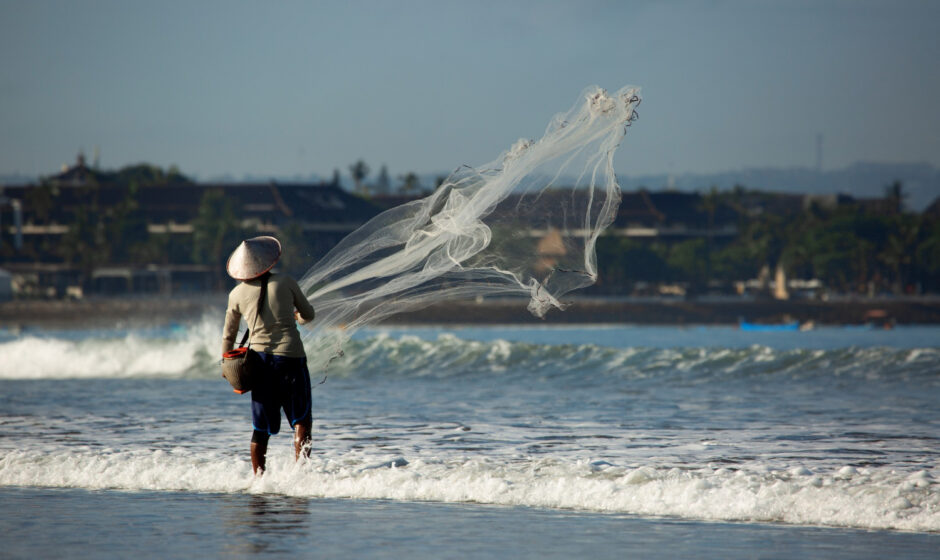As you savor that delectable salmon fillet or indulge in those crispy fish sticks, have you ever paused to consider the journey your seafood has taken to reach your plate? The truth is, the source of your seafood matters – and it’s not just about environmental sustainability.
Beneath the shimmering surface of the global fishing industry lies a dark underbelly of human rights abuses and labor exploitation. A growing body of evidence reveals that forced labor, particularly of Indonesian and Uyghur workers, is rampant in the fishing and processing of seafood destined for American tables.
China, with its vast fishing fleet and complex supply chains, stands at the center of this disturbing trend. Chinese-owned and -flagged vessels account for the world’s largest distant-water fishing fleet, operating in every ocean. These vessels often remain at sea for extended periods, subjecting their workers to inhumane working conditions, including inadequate food, medical care, and rest.
The human cost of this exploitation is staggering. Workers on these vessels face physical and psychological abuse, with reports of beatings, confinement, and even death. They are often forced to work long hours without proper compensation, trapped in a system of debt bondage that keeps them from escaping their plight.
The consequences of this exploitation extend beyond the immediate suffering of the workers. Overfishing by these large-scale fleets is depleting fish stocks, threatening the livelihoods of coastal communities around the world, and disrupting marine ecosystems.
The United States, a major importer of seafood, has a moral obligation to address these human rights abuses. Several policy changes can help tackle this issue, including:
- Eliminating Harmful Subsidies: The World Trade Organization should ban subsidies that promote overfishing and encourage unsustainable practices.
- Enacting Forced Labor Protections: The United States should prohibit the importation of seafood unless it can be traced back to its source and verified to be free of forced labor.
- Mandating Comprehensive Labeling: Mandatory country-of-origin labeling for seafood should be extended to restaurants, small markets, and cafeterias to ensure consumer transparency.
- Enforcing Boat-to-Plate Traceability: President Biden should mandate boat-to-plate traceability for all seafood sold in the U.S., ensuring a transparent and accountable supply chain.
- Empowering Informed Consumer Choices: Consumers should make informed choices by using resources like the Monterey Bay Aquarium Seafood Watch guide to select environmentally sustainable and responsibly sourced seafood.
Addressing these human rights abuses in the global fishing industry requires a multi-pronged approach, involving international cooperation, government action, and consumer awareness. By taking a stand against forced labor and overfishing, we can protect the rights of workers, safeguard marine ecosystems, and ensure a more sustainable future for global seafood production.
Delving Deeper into the Abyss of Human Exploitation:
The reality of forced labor in the global fishing industry is a stark reminder of the human cost of our food choices. The vastness of the oceans and the remoteness of fishing vessels provide a shroud of secrecy, allowing these abuses to continue unchecked.
The Indonesian fishing industry, in particular, has been plagued by reports of forced labor. Indonesian fishermen, often recruited under false promises of high wages, find themselves trapped on Chinese vessels, subjected to grueling workdays, meager rations, and physical violence.
The plight of Uyghur workers, a minority group in China facing systematic repression, adds another layer of complexity to the issue. Uyghur fishermen, forced to leave their homeland due to persecution, find themselves ensnared in debt bondage and labor trafficking schemes.
The Ripple Effect: Environmental Devastation and Lost Livelihoods:
The human rights abuses in the global fishing industry are inextricably linked to environmental degradation and the disruption of coastal communities. Overfishing by these large-scale fleets is depleting fish stocks at an alarming rate, threatening the marine ecosystems that sustain countless species and the livelihoods of millions of people who depend on the sea for their survival.
In coastal communities around the world, overfishing has led to declining catches, reduced incomes, and increased food insecurity. The destruction of marine ecosystems has also had a profound impact on traditional cultures and economies that are deeply intertwined with the sea.
A Call to Action: Protecting Human Rights and Marine Ecosystems:
Addressing the human rights abuses and environmental consequences of the global fishing industry requires a concerted global effort. Governments, international organizations, industry leaders, and consumers all have a role to play in dismantling the systems of exploitation and promoting sustainable practices.
Governments must strengthen laws and regulations to combat forced labor and overfishing, while also providing support to victims of exploitation. International organizations must coordinate efforts to monitor and enforce these regulations, ensuring that they are applied consistently across the globe.

